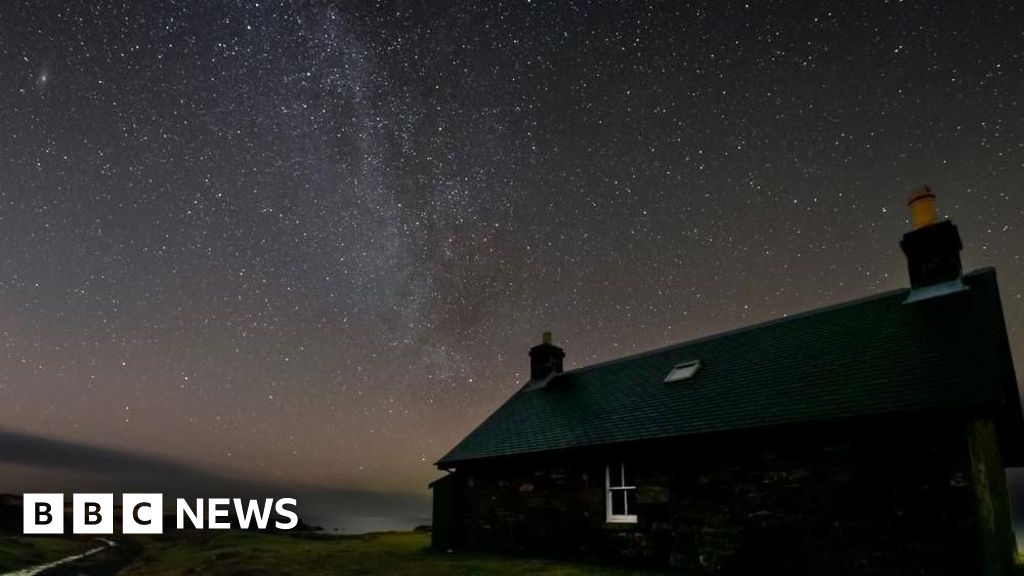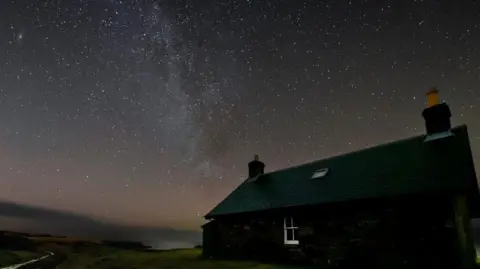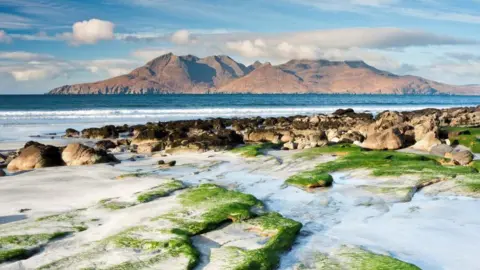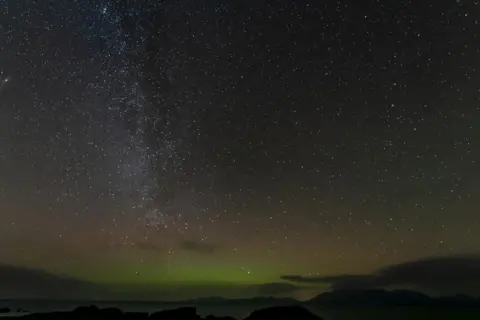World
Island of Rum named an International Dark Sky Sanctuary

 Steven Gray/Cosmos Planetarium
Steven Gray/Cosmos PlanetariumA Scottish island has been officially recognised as having one of the best night skies in the world.
The island of Rum, south of Skye and home to 40 people, has been named Scotland’s first International Dark Sky Sanctuary by the organisation DarkSky International.
Scotland has five International Dark Sky Places – where the skies are protected from excessive artificial light – but Rum is the first sanctuary because it meets stricter night sky quality criteria, particularly around low levels of light pollution.
There are just 20 other locations with the same status worldwide, with only one other in Europe – Ynys Enlli in Wales.
On clear nights, the island has views of the Milky Way, planets and the Northern Lights.
DarkSky International said Isle of Rum Community Trust and Scotland’s nature agency NatureScot had worked hard to gain the recognition.
It said the designation also acknowledged Rum’s scientific and cultural importance.
The island has one of the world’s largest colonies of Manx shearwater and other birdlife include white-tailed sea eagles.
Rum also has hundreds of red deer, with the animals being the focus of a long-running research project.
 Getty Images
Getty ImagesDark Sky Places programme manager Amber Harrison said the new status would offer added protection to the island’s natural habitats.
She said: “This certification represents the hard work and dedication of advocates, residents, and community officials who recognise the value of Rum’s natural and cultural resources and are dedicated to safeguarding them against human impacts into the future.”
Work has started on new projects around the status.
They include plans for a tower at Kinloch with telescopes for viewing the night sky.
A camera and weather station have also been proposed to provide round-the-clock online viewing worldwide.
A year-round programme of astronomy events and informative signs around the island are to be put in place to educate visitors and locals on the importance of dark skies both for human health and for nature.
 Steven Gray/Cosmos Planetarium
Steven Gray/Cosmos PlanetariumAlex Mumford, who led Rum’s Dark Sky bid, said: “We are thrilled to become Scotland’s first Dark Sky Sanctuary and relish the prospect of the impact we can have far and wide.
“It has been a long process and a lot of hard work has gone into this and we hope to provide inspiration around the world for other small communities to do the same.”
Fliss Fraser, a director for the Isle of Rum Community Trust, said the new status would help with ongoing efforts on the island to encourage sustainable tourism.
Most of Rum is designated as a national nature reserve (NNR).
In spring and summer, more than 120,000 pairs of manx shearwater arrive on the island to breed.
Lesley Watt, NatureScot’s NNR manager for Rum, said dark nights were key to the birds’ survival because their fledglings were at risk of being disorientated by artificial lights, such as street lighting.











